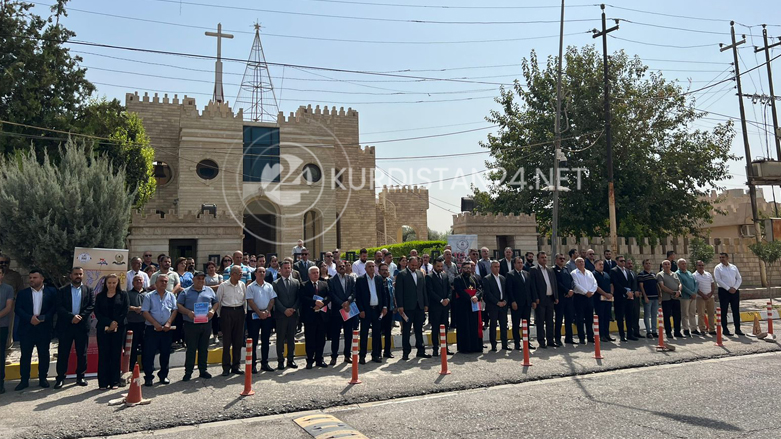Kurdistan Region president stresses 'coexistence, forgiveness' on Simele massacre anniversary
The Kurdistan Regional Government (KRG) recognizes the massacre on its official calendar.

ERBIL (Kurdistan 24) – The Kurdistan Region President Nechirvan Barzani reiterated the importance of coexistence and forgiveness on Sunday, the 89th anniversary of the Assyrian Simele massacre.
On Assyrian Martyrs Day, the Kurdistan Region remembers the victims of the Simele massacre perpetrated by the Iraqi regime in 1933, President Barzani wrote.
"On this commemoration [day], we emphasize coexistence and forgiveness," read his tweet.
A group of Assyrian intellectuals and writers in the Kurdistan Region Christian-majority district of Ankawa stood for a moment of silence to commemorate the tragic event in which thousands of their community members were killed.
"Under the auspices of the KRG, we are proudly and freely commemorating this event," Ramy Noori, the head of the Christian district, told Kurdistan 24.
Assyrians are one of the indigenous communities of Mesopotamia, which covers today's Iraq, Syria, and Turkey. They are predominantly Christians.
There were an estimated 1.4 million Christians in Iraq, according to a census carried out in the early 1980s. However, that figure has shrunk due to mass exodus and persecutions in the post-2003 period.
Thousands of Christians from Iraq's northwestern Nineveh province sought refuge in the Kurdistan Region when ISIS attacked their homeland in 2014.
Many of Nineveh's Christians also fled Iraq and resettled in Europe and the US.
Additional reporting by Shayma Bayiz